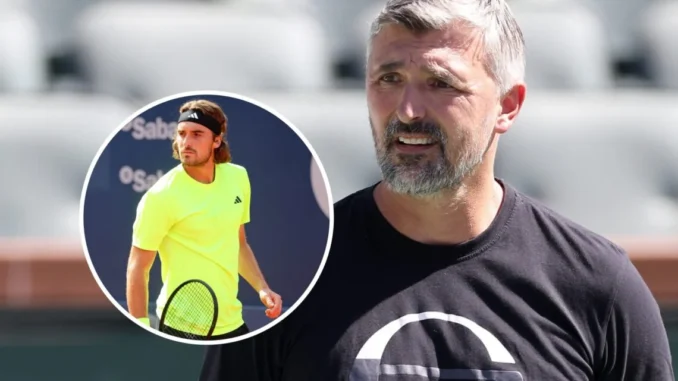
The 2025 Wimbledon Championships delivered high-octane drama, but a poignant moment off the court has sparked a broader conversation about the mental toll of professional tennis. Alexander Zverev, the German world No. 4, suffered a crushing first-round exit on July 1, 2025, falling to Arthur Rinderknech in a five-set epic, 7-6, 6-7, 6-3, 6-7, 6-4. The defeat, one of the most significant upsets of the tournament’s early rounds, left Zverev visibly shaken, prompting a candid admission about his mental struggles. Former world No. 2 and 2001 Wimbledon champion Goran Ivanisevic, reflecting on Zverev’s openness, didn’t hold back, stating, “When I listen to players, everyone’s on antidepressants, Zverev says he’s in a bad place.” His stark observation, shared in an interview with *Clay* magazine, has ignited a firestorm of discussion about the pressures facing today’s tennis stars.
Zverev’s post-match press conference was raw and revealing. The 28-year-old, who has long been tipped for Grand Slam glory, laid bare his feelings of isolation. “I feel very alone out there at times,” he confessed. “I struggle mentally … I’m trying to find ways to kind of get out of this hole. I keep kind of finding myself back in it in a way. I feel, generally speaking, quite alone in life at the moment, which is a feeling that is not very nice. It’s not a feeling on a tennis court, it’s just a life feeling in general.” His words struck a chord, echoing the sentiments of other players who have spoken out about mental health, including Naomi Osaka and Nick Kyrgios. For Zverev, the loss to Rinderknech—a player ranked outside the top 50—marked a low point in a season already marred by off-court challenges and inconsistent form.
Ivanisevic, known for his fiery passion and unfiltered commentary, used Zverev’s admission to highlight a broader crisis in the sport. “I don’t know why they [the players] put so much pressure on themselves,” he remarked. “Maybe it’s outside expectations, society’s expectations—they can’t handle it.” The Croatian, who coached Novak Djokovic to multiple Grand Slam titles, pointed to the relentless demands of the ATP and WTA tours, where players compete nearly year-round with little time to decompress. The pressure to perform, coupled with social media scrutiny and public expectations, has created what Ivanisevic called a “madhouse” environment. His blunt claim that “everyone’s on antidepressants” underscores the prevalence of mental health challenges, with players turning to medication or therapy to cope with the sport’s grind.
Zverev’s Wimbledon defeat was particularly stinging given his recent resurgence. After reaching the 2024 French Open final and climbing back to world No. 4, he was a dark horse for the title. However, his five-set battle against Rinderknech exposed vulnerabilities, both physical and mental. The match, which lasted over four hours, saw Zverev struggle with consistency, particularly in the deciding set, where unforced errors cost him dearly. His emotional press conference afterward drew support from peers like Djokovic, who empathized, saying, “I’ve been through the same many times.” The Serbian star’s words reflect a growing acknowledgment within tennis that mental health is as critical as physical fitness.
The broader context of Ivanisevic’s comments paints a sobering picture. Tennis, with its solitary nature and high stakes, amplifies feelings of isolation. Players like Zverev, who travel the world with minimal downtime, face constant pressure to maintain rankings, secure endorsements, and meet fan expectations. Social media amplifies this, with players facing both adoration and vitriol online. Ivanisevic’s observation, while controversial, aligns with recent trends: players like Osaka have taken breaks for mental health, and Kyrgios has been open about his struggles with depression. The ATP and WTA have responded with initiatives like on-site mental health support, but Ivanisevic’s “madhouse” metaphor suggests deeper systemic issues remain.
For Zverev, the road ahead is uncertain. His talent is undeniable—28 career titles and a 2020 Olympic gold medal attest to that—but his mental battles could define his legacy. Ivanisevic’s remarks, while provocative, serve as a wake-up call for the sport to address the human cost of its relentless pace. As Wimbledon 2025 continues, with players like Carlos Alcaraz and Ary Câmara Sabalenka dominating headlines, the conversation around mental health is gaining urgency, urging tennis to find balance between competition and care.
Leave a Reply